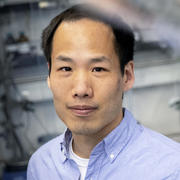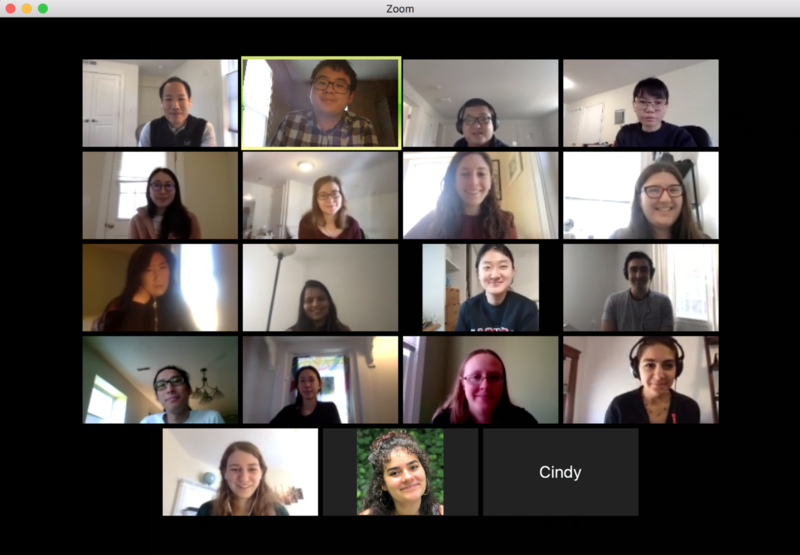
Brian Liau earns a Star Family award for exemplary intellectual and personal guidance of undergraduate students
Every year, the Harvard College Advising Office awards their prestigious Star Family Prize for Excellence in Advising to 12 advisors across the University. This year, Brian Liau, an assistant professor in the Department of Chemistry and Chemical Biology (CCB), earned one of the 12. Only three go to faculty.
The Star Prizes, established by Harvard alumnus James A. Star ('83), recognize individuals who demonstrate exemplary intellectual and personal guidance of undergraduate students. Every year, the Advising Office solicits nominations from the undergraduate student body; then, a committee of College staff, previous Star Prize recipients, and peer advising fellows confer to select winners.
“This recognition has special meaning to me as an alumnus of Harvard College,” Liau said. He is a rare double-alumnus: After graduating from the College in 2007, Liau returned to earn his Ph.D. in chemistry under the guidance of Professor Matthew Shair. Though he crossed the river for a postdoctoral fellowship at Massachusetts General Hospital, he returned to CCB in 2016 to launch his own lab and teaching career.
“I remember how much of an impact my college professors had on me when I was a student, which convinced me to pursue a Ph.D. in chemistry,” Liau said. “To see my efforts, to replicate their dedication to education and advising, make a difference to my own students 15 years later is, all at the same time, very touching, rewarding, and motivating.”

A recent virtual Liau lab meeting held during the COVID-19 shutdown. Professor Liau is in the top left corner of the grid. Photo courtesy of the Liau lab
In his lab, Liau tackles problems that, because of their interdisciplinary nature, require not just deep but broad knowledge of several fields, including chemical biology and gene regulation. In January 2020, he was again just one of a dozen researchers to earn a Damon Runyon-Rachleff Innovation Award for his new approach to understanding the efficacy of cancer treatments through epigenetics. The year before, he made a significant breakthrough in determining why certain acute myeloid leukemia treatments don't work for some patients.
Since Liau's own work is founded on bridging gaps between fields, it’s not surprising that he relies on the same cross-disciplinary vision in the classroom. Over the past three years, he re-designed the curriculum for Chemistry 27: The Organic Chemistry of Life to integrate organic chemistry, biochemistry, medicine and physiology. Organic chemistry is critical to understand biology, Liau said, and research at the interface of these fields is already having tangible and dramatic impacts on human health and society. This year, the instructor rating for the course was 4.4 out of 5.0, the highest a faculty member has received in a decade.
“In order to prepare our students and next scientific leaders for the collaborative scientific enterprises they will encounter and pursue, I strongly believe that introductory science courses should have increased focus on integrating concepts from different fields of science,” Liau said.
But Liau innovates beyond the content of his lectures; he believes in the power of active learning. Last fall, when he co-instructed Chemistry 110: Chemistry and Biology of Therapeutics, he brought in new technologies—like industry-grade computer-assisted small molecule modeling and even virtual reality—to give students a hands-on way to design their own molecules and visualize chemical interactions.
Outside the classroom, Liau served as the Biochemical Sciences Tutor for the sophomore and junior tutorials in the Molecular Biology and Chemical and Physical Biology concentrations. With each group, he hosted informal discussion sessions to review scientific papers to teach the students not just to absorb the information but to criticially analyze the material, too.
“My central teaching philosophy is to inspire innovation and enthusiasm in the chemical sciences through its applications to transform biological research,” Liau said. “I would be remiss to leave out that I have also learned so much from my advisees, which has allowed me to grow as a mentor and instructor.”
